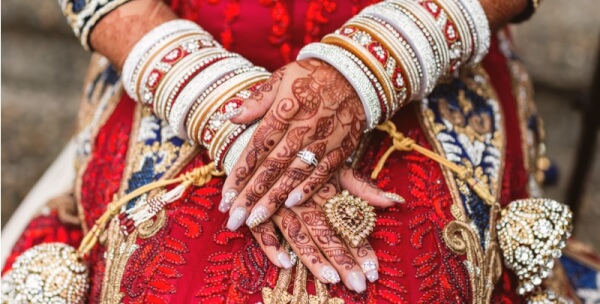Indian job interview? Here are some tips
India is an ethnically diverse and culturally vibrant country. If you’re thinking about moving to India you'll probably need to find a job, and with a large...

Having a baby is one of the most exciting times of your life. But there are many aspects that can feel daunting, especially if you’re an expat living abroad. You’ll have to navigate foreign healthcare systems, maternity leave rules, and medical expenses. However, if you’re living in India you shouldn’t worry. There are more than 50 babies being born every minute in India and the country has a lot of options for new parents at relatively low costs.
This article covers what you need to know about the costs associated with having a baby in India, including those for fertility treatments and regular medical expenses.
Approximately 1 in 8 couples worldwide have trouble conceiving. The first test tube baby was born in 1978. Since then, there have been many medical advancements that make infertility treatments, like in-vitro fertilisation (IVF), a viable alternative for couples. Some couples travel abroad to have these procedure done at lower costs - a practice known as ‘medical tourism.’
The Indian medical tourism industry was recently estimated to be worth around 3 billion USD, and it’s growing more popular each year. Many Indian doctors train in Western countries, and there’s a growing international quality standard in Indian hospitals. The Indian Ministry of Tourism offers medical visas for non-residents, visitors, and tourists intending to travel to India for medical treatment. They’re valid for a year.
In India, the local currency is the Indian rupee. Sometimes written as INR on the currency exchange market or Rs in everyday life. To check how much rupees are worth in comparison to your local currency, you can use a currency converter online to find out.
| IVF fertility treatment in India | Average cost (INR) |
|---|---|
| IVF process (total costs) | 200,000 - 300,000 Rs |
| In vitro fertilization (IVF) fertility drugs | 50,000 - 70,000 Rs |
| Intracytoplasmic sperm injection (ICSI) | 90,000 - 250,000 Rs |
| Donor eggs or embryos | 28,000 - 42,000 Rs |
| Frozen embryo transfer (FET) | 50,000 - 120,000 Rs |
| Embryo storage, yearly | 20,000 - 30,000 Rs initially, plus 4,000 - 6,000 annually |
One program in India that may help couples finance IVF treatments is the Bhartiya Mahila Bank and New India Assurance scheme. Check with your insurance, healthcare providers, or IVF treatment centre for other financial assistance. Depending on your private insurance, you may have more options.
The following websites can help you learn more about IVF in India:
India has a universal healthcare system, but there’s a discrepancy over the quality of care in different centres. Public facilities offer universal costs, but private facilities are generally preferred by international tourists. Health insurance will generally cover up to 50,000 Rs of the costs associated with giving birth.
A birth in a private hospital in India might cost:
If you’re in India as a visitor or tourist near the time you’re due to have your baby, you are allowed to have the baby in an Indian hospital. Birth tourism isn’t really a popular thing in India though, since your baby won’t have birthright citizenship just for being born there.
Having a baby in a public hospital will not cost you. Many couples choose to have their baby in a private hospital. Maternity insurance plans generally cover up to 30,000 - 50,000 Rs worth of expenses for the birth.
| Baby delivery medical procedures in India | Average cost with no insurance (INR) | Average cost with insurance (INR) |
|---|---|---|
| Birth and delivery in the hospital | 15,000 - 75,000 Rs | 0 - 25,000 Rs |
| Cesarian section in the hospital | 25,000 - 200,000 Rs | 0 - 150,000 Rs |
| Home birth and delivery with midwife | 35,000 - 70,000 Rs | 0 - 20,000 Rs |
If all goes according to plan, the average mother doesn’t have to stay too long in hospital after labour and delivery. If you’ve undergone a complicated procedure, the doctors, nurses and midwives will make sure that you and baby are healthy before releasing you from the hospital. For a normal birth, plan to stay for just a few days at most.
The average stay for moms in hospital after giving birth in India is 3 days. If the mother had a Caesarian delivery, the hospital stay after birth is at least 48 hours, but generally more.
Moms should pack a maternity bag to bring with them to the hospital. This should consist of extra clothes and comfort items for you and your newborn. Hats, onesies, socks, a stuffed animal, and newborn diapers are recommended, as well as clothes to labour in and toiletries for mom.
If you’re having your baby at the hospital you should bring your proof of insurance. When the birth is over you need the following paperwork to register your baby at the local government office:
Registering your baby’s birth differs by state in India. Most hospitals issue a form as proof of the birth, which you can take to your local registrar’s office. As a foreign national, you should contact your local consulate or embassy to register your baby’s birth at home.
Anyone born in India after December 2004 is eligible for citizenship if both parents are Indian citizens, or if one is a citizen and the other is a legal migrant. India doesn’t generally recognise dual citizenships, so if your baby is eligible for Indian citizenship, they’ll probably need to choose between nationalities.
Prenatal and postnatal care in India is up to most Western country standards. India has paid maternity leave up to 26 weeks for women working at companies with more than 10 employees. They’re less progressive when it comes to paternity leave - there is none for now. A proposed bill in Parliament is considering granting 15 days paternity leave.
Like millions of other expats out there, you’re probably juggling your money, and the rest of your life, between two countries. This is where Wisecan help. Wise is the new financial service for international people. You can move your money around the world, as easily as possible, for as little as possible. Unlike most traditional banks and money transfer services, Wise offers customers the real exchange rate - the one you can find on Google - when you move your money across the world. With one, fair, upfront fee spelt out clearly from the beginning, you’ll likely find that you can save a lot when sending money abroad.
Don’t believe it? Try it yourself. Wise has helped people across the world save money.
From infertility treatments to the delivery room, India has many options for new parents. If you’re seeking to have a baby in India or your little one is on his or her way, this article will help you navigate the healthcare system and costs associated with this exciting process.
| ----- |
| This publication is provided for general information purposes only and is not intended to cover every aspect of the topics which it deals. It is not intended to amount to advice on which you should rely. You must obtain professional or specialist advice before taking, or refraining from, any action on the basis of the content in this publication. The information in this publication does not constitute legal, tax or other professional advice from TransferWise Limited or its affiliates. Prior results do not guarantee a similar outcome. We make no representations, warranties or guarantees, whether express or implied, that the content is the publication is accurate, complete or up to date. |
*Please see terms of use and product availability for your region or visit Wise fees and pricing for the most up to date pricing and fee information.
This publication is provided for general information purposes and does not constitute legal, tax or other professional advice from Wise Payments Limited or its subsidiaries and its affiliates, and it is not intended as a substitute for obtaining advice from a financial advisor or any other professional.
We make no representations, warranties or guarantees, whether expressed or implied, that the content in the publication is accurate, complete or up to date.

India is an ethnically diverse and culturally vibrant country. If you’re thinking about moving to India you'll probably need to find a job, and with a large...

The food alone is reason enough to plan a trip to India. Add in a booming technology sector, bustling cities and heaps of historical and religious monuments,...

India is a country packed with opportunities - so if you live or work there, and plan to stay for the long term, then seeking Indian citizenship makes a lot...

With a population of more than 1.3 billion, it’s no surprise that India runs the largest national school system in the world. While it’s not often recognized...

Getting legally married in India isn’t a simple process. Between a lengthy wait time, nuanced legal customs and a plethora of details to consider. However,...

As its industry and economy become stronger, India is becoming an increasingly popular destination for expats. The diversity of the country and population is...